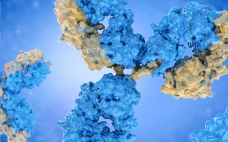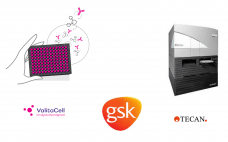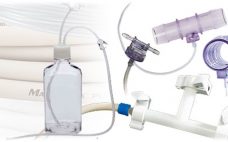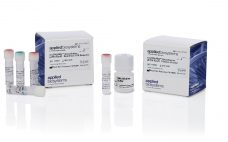This webcast features: Ashleigh Wake, Business Development Director, Intertek Pharmaceutical Services Inhaled and nasal biologics continue to grow in importance as advantages presented both by targeted delivery to the lung and systemic delivery for other diseases or treatment pathways are driving this increased attention. In this webinar, Ashleigh Wake describes the top development considerations for inhaled or intranasal biologic analytical development. These include the need to meet regulatory requirements of ICH Q6B for a well characterized biologic as well as…
Ask the Experts
Ask the Expert: Facilitating Process Development Using a Microfluidic Perfusion Bioreactor
Suitable scale-down perfusion systems generally have been unavailable for process development (PD) activities. Some commercially available systems require daily media exchanges. No such system performs in a way that accurately represents large-scale perfusion, and none maintains sufficiently high cell densities. Kevin Lee (cofounder of Erbi Biosystems) joined BPI on 4 May 2021 to explain how his company’s Breez bioreactor system integrates all the functions of a stirred-tank reactor (STR) into a compact format that can facilitate PD, enabling one person…
Ask the Expert: Streamlining Mesenchymal Stem Cell Production — From Expansion Through Removal of Cryoprotectant
The number of cell therapy product candidates based on mesenchymal stem cells (MSCs) has grown steadily since their clinical debut in 1995. As of June 2020, clinical investigators were evaluating more than 1,100 such therapies. Scaling up MSC production remains challenging, however. On 31 May 2021, Hilary Sherman (senior scientist at Corning Life Sciences) presented an “Ask the Expert” webinar describing her company’s efforts to facilitate MSC workflows. Sherman’s Presentation Easing Expansion: MSCs have strong differentiation capability and can be…
Ask the Expert: A Novel Escherichia coli System for Controlled Release of Difficult-to-Secrete Proteins
Although Escherichia coli often enables dependable, highly productive expression of nonglycosylated recombinant proteins, the efficiency with which it secretes a target protein into culture supernatant can depend greatly on that molecule’s physicochemical properties. Some proteins remain trapped in periplasm, thus diminishing process yield and productivity. In June 2021, Marcel Thoen (head of Wacker Biotech’s Global Competence Center for Cell Line Development) described how his company’s improved ESETEC (E. coli secretion technology) solutions can address productivity challenges raised by difficult-to-secrete recombinant…
Ask the Expert: Critical Steps in Potency Assay Development
Biologics undergo extensive characterization to demonstrate their safety, purity, and efficacy. Jennifer Lawson (product manager for cell line, media, and testing solutions at Sartorius) highlighted the role of potency assays in that process. Because they reflect the complexity of biological systems, scientists must develop robust assays that will provide sufficient data for good-practice (GxP) applications. Lawson pointed out milestones in the bioassay life cycle and explored ways to help ensure method suitability. Lawson’s Presentation Development Criteria: Potency assay development requires…
Ask the Expert: HCP Analysis By Orthogonal Methods in Vaccine and Gene Therapy Development
Regulators require testing of drug products for process-related impurities throughout development to monitor product safety, purity, and efficacy. Low levels of most impurities can be inconsequential, but patient safety demands that host-cell proteins (HCPs) be eliminated or reduced to the lowest levels practical. Enzyme-linked immunosorbent assays (ELISAs) represent a key tool in that endeavor. Antibody-coverage analysis is one part of assessing a platform kit or custom HCP ELISA. In a 15 June 2021 webinar, Jared Isaac (senior scientist at Cygnus…
High-Throughput IgG Titer Analysis
This webcast features: Zoe Hughes-Thomas, Head Medicine Design Automation Team, and Celal Dari, Laboratory Science Apprentice, GSK Antibodies. A key cornerstone of pharmaceuticals, from oncology to immunology. But how do we quantify them? Existing methods have proven the process needs to be improved, from long assay turnaround times to discordant results. A key method of innovating the process includes embracing new technology including automation and new assays. The presentation will introduce aspects of current methods of automation that aim to…
Improve Productivity and Operational Efficiency with Single-Use Technology
This webcast features: Rob Martindale, Product Manager, EMEA, Masterflex In many manufacturing environments, and especially in the biopharmaceutical market, there is a constant emphasis on making productivity improvements and streamlining every-day processes. One solution that many companies are turning to is the implementation of single-use technology. In this webinar, we will expand on what’s possible with single-use technology and then highlight practical ways single-use technology can make positive impacts on your workflow and on your bottom line. Just fill out…
Ask the Expert: Leveraging Quality Management Systems to Achieve Competitive Advantages
During a May 2021 “Ask the Expert” presentation, Jigisha Patel (vice president of global regulatory compliance and technical services at Spectrum Chemical Manufacturing Corporation) emphasized the need to minimize supply-chain contingencies that lead to variability across raw materials used in biopharmaceutical manufacturing. Deviations in raw-material specifications can jeopardize good manufacturing practice (GMP) compliance and reduce drug-product efficacy and stability. Patel explained how her company’s quality management system ensures that bioprocess materials will meet specifications and process needs. Patel’s Presentation Patel…
Simplify Analytical Development for Measuring Residual Plasmid DNA in mRNA, Gene Therapy, and Other Biologics Manufacturing
This webcast features: Tania Chakrabarty, PhD, Senior Manager, Innovation Leader, Research and Development, Pharma Analytics, Thermo Fisher Scientific Plasmids are common raw materials in the manufacturing of various biotherapeutics, from use as template for mRNA vaccines to gene introduction via transfection of mammalian cells for viral vector production. Worldwide regulatory agencies (WHO, EMA, US FDA, etc.) require that clearance of residual plasmid process-related impurities via downstream purification be demonstrated to below the accepted limit in the final drug substance. Previous…




